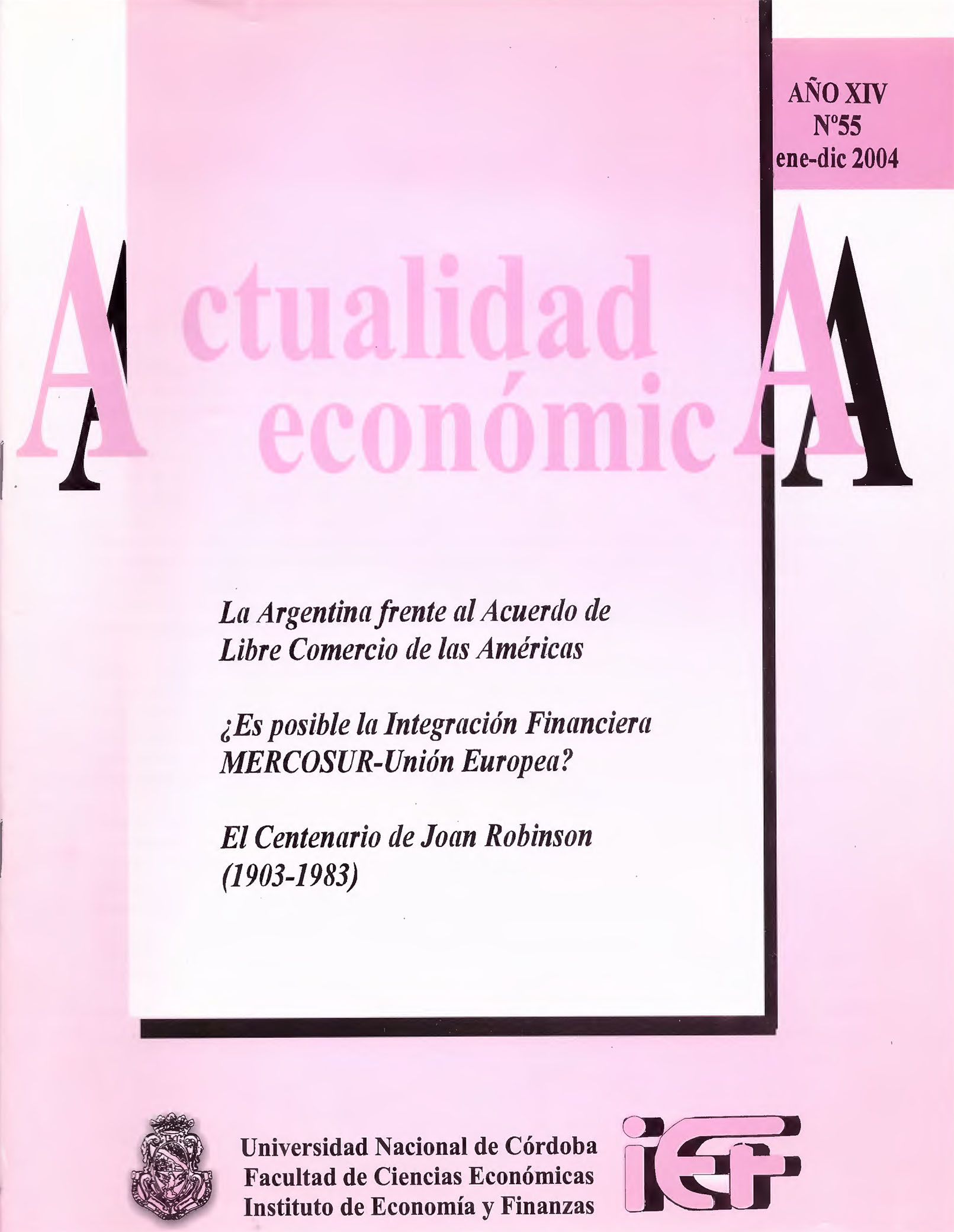Argentina versus the Free Trade Agreement of the Americas
Keywords:
FTAA, Free Trade Agreements, ArgentinaAbstract
This article deals with some of the many aspects that make Argentina's relationship with economic integration processes, especially those that link the country with the Free Trade Agreement of the Americas (FTAA). First, the presentation begins by answering what the FTAA is, detailing the current situation of the negotiations for the benefit of readers unfamiliar with the agreement. Next, the essay deals with a rapid issue related to the future of protectionism in the agricultural sector, as this is also the most disappointing sector of all in terms of discussions. Subsequently, it tries to establish what the Argentine position should be in the negotiations related to that agreement, which arises from the dilemma about whether or not the country should negotiate with the Southern Common Market (MERCOSUR). Finally, the presentation makes some recommendations on what Argentina should do, from now on, in the FTAA.
Downloads
Downloads
Published
Issue
Section
License

This work is licensed under a Creative Commons Attribution-ShareAlike 4.0 International License.
Those authors who have published with this journal, accept the following terms:
Authors will conserve their copyright and guarantee the magazine the right of first publication of their work, which will be simultaneously subject to the Creative Commons Attribution-NonCommercial-NoDerivative 4.0 International License that allows third parties to share the work as long as the author and first publication of this magazine are indicated.
Authors may adopt other non-exclusive license agreements to distribute the published version of the work (e.g., deposit it in an institutional telematic archive or publish it in a monographic volume) provided that the initial publication in this journal is indicated.
Authors are allowed and encouraged to disseminate their work through the Internet (e.g., in institutional telematic archives or on their website) before and during the submission process, which may lead to interesting exchanges and increase citations of the published work. (See The effect of open access)









